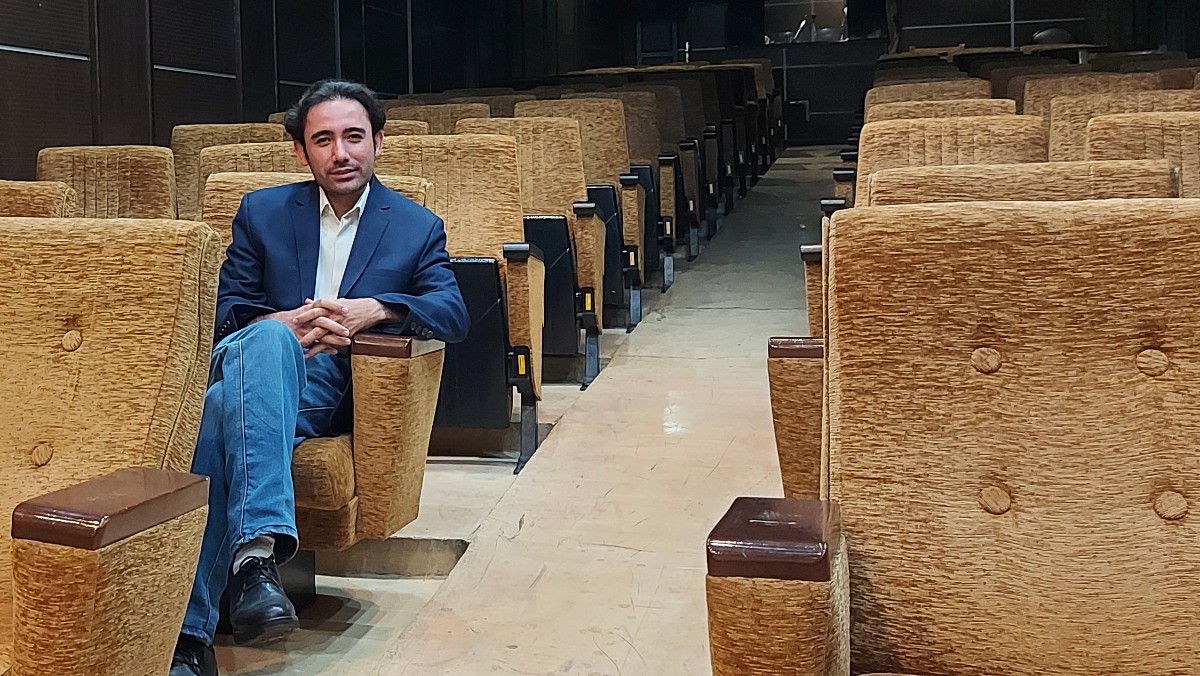
Mahdi Ghorbani is an Iranian Director, Producer, and Writer. The filmmaker completed a Telecommunication Engineering Degree at the University. In 2016, Mahdi attended the one-year filmmaking course in the Iranian Youth Cinema Society and began his film career by making the narrative short film “Utopia” in 2018.
He began to collaborate with the Documentary and Experimental Film Center – a production company. He’s worked as a technical support specialist at Iranian film festivals teams such as the Iran International documentary film festival (Cinema Verite), and the Health film festival, and the International Green film festival. He founded his company, “MGH Pictures” in early 2021. He talks to indieactivity about his film UTOPIA.
indieactivity: Tell us about your narrative short film Utopia?
Mahdi Ghorbani (MG): Utopia is about Women’s Rights in Iran. The story is about an innocent young woman who is confronted with her Sister’s suicide. She discovers clues from her sister’s death and the realities of her society and finds out what she must do to not follow her sister’s path, but survive in this Utopia. The film reflects the cruel and suffocating atmosphere of the Iranian Society towards women: unfair treatment of women! They are not the weaker sex, rather women are condemned to be persecuted in every corner, which is not acceptable to me as a filmmaker. This is the “why” which led me to make the film. We screened Utopia at 25 international film festivals and received great comments and constructive feedback from various countries which are encouraging.
The Official Trailer for UTOPIA written and directed by Mahdi Ghorbani
indieactivity: A background of your personal experience with the story, writing, production, and marketing?
Mahdi Ghorbani (MG): Iran is a traditional country moving into modernization in recent years. In such a society transitioning to a modern one, its people pay a heavy price, and it is women who are the most vulnerable in this process. On the one hand, we are in a state of cultural transition, and new problems arise as we move out of the previous balance to form a new one. On the other hand, problems women have to deal with, which have existed for a long time, are not going to end during this transition or after it. We interviewed various women and girls who shared their desires, views, and perspectives with us, and we tried to address a small part of these issues in the film.
Did you start writing with a cast (You or any) in mind?
Mahdi Ghorbani (MG): I start with an idea and let the story shape over time. From the moment it sparks in my mind and sprouts like a plant to become a large tree, I tend to gradually develop them into a complete script and sometimes it lasts many years before it reaches a full script. Although it can continue forever, I’ll stop it when it becomes a story with enough complexities that I want. Rather than thinking about the volume of pages in a screenplay, I think about deepening and enriching it. Music also helps me when writing; one of the things I do during screenwriting is to select the music of the film. Indeed, a film’s score or soundtrack is and will be one of the more important factors in my work.
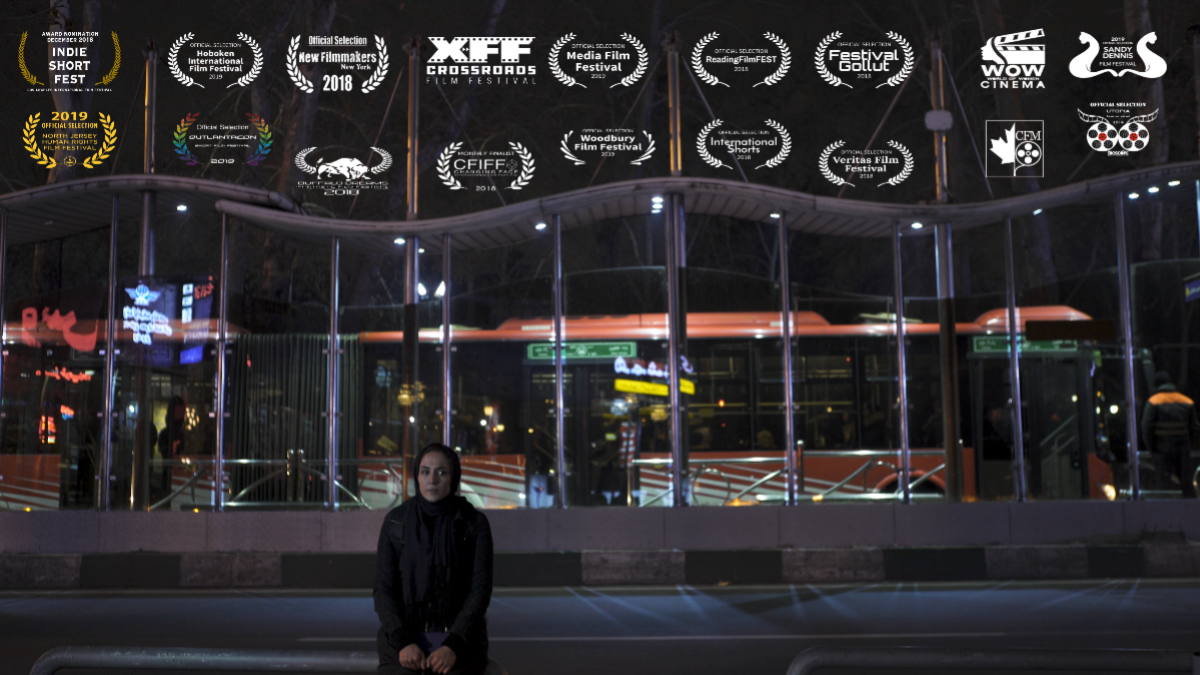
How long did you take to complete the script? (Do you have a writing process?)
Mahdi Ghorbani (MG): In the case of UTOPIA, the same process took place and it took four years from idea to production. The primary idea was shaped in my apartment’s elevator after seeing my neighbor’s daughter in the elevator over time. About every fortnight, I see the girl next door in the elevator for just twenty seconds. Over the course of six months, she changed mentally and physically which sparked my interest. You can never know when, where and how ideas penetrate your thinking. One such idea is the short comedy Dirt Road and the romance story The Last Day which I have completed, I plan to make them and they’ll shape the future direction of my filmmaking which is much clearer and brighter in my mind.
How did you develop ‘your film’?
Mahdi Ghorbani (MG): Ever since the idea sparked in the elevator, I started my research and talked to different women. And after all the research, experiences,… etc a film emerged out of my mental filter that reflects my point of view.
How was it financed?
Mahdi Ghorbani (MG): Utopia, being a film student work, was self-financed. But for the next films Dirt Road and The Last Day, I’m going to bring in investors and production houses or run crowdfunding campaigns at certain stages of the production.
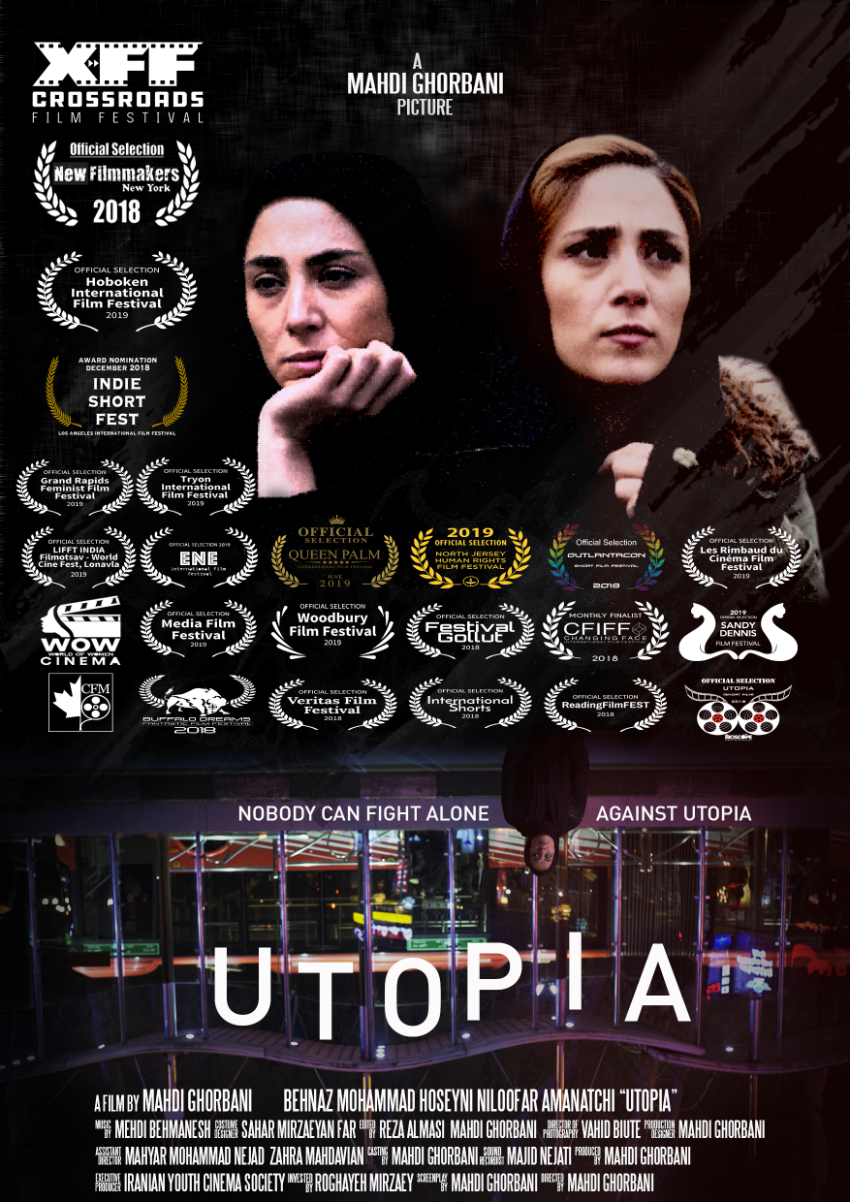
Is there anything about the independent filmmaking business you still struggle with?
MG: For filmmakers In Iran, in addition to censorship, the subject of financing projects as an issue is really very annoying. There are state-owned film companies that run at a low budget, but these funds are not available to filmmakers due to the cinema mafia in Iran. Obviously, they don’t support different themes of films. Iranians also don’t support filmmakers financially, well they can’t because of sanctions on the country, which has worsened the economic situation in Iran making Iranians really poor. The value of the Iranian National Currency (Rials) changes momentarily against the Dollar. Over the past year, Iran’s currency shrunk by a third, which means costs have tripled. The problem is how to raise funding within the country. One way is international cooperation. I’m going to try negotiating with filmmaking companies and crowdfund, we’ll see how these go.
How long was your pre-production?
MG: The pre-production of “Utopia” took five months. I think it will be the same for “Dirt Road” and “The Last Day”. Pre-production is very important to me. I’m one of those directors who believe that everything should be thought out in advance. First, I make my film in my mind. When 90% of it was made in my mind, I feel relieved. Then, I go to the locations with my team and record only those parts that exist in my mind. That’s is my style and in Iran, pre-production is very significant. The more prepared the better, because there are always fresh problems. Unexpectedly, there is a new problem every day while I try not to create problems. Filmmakers have to do what they can do regularly and accurately. I believe that we should go to the scene with a prepared plan, of course, some decisions change on set. But as much as possible, I must have made all the necessary decisions before and not postpone them to the last moment.
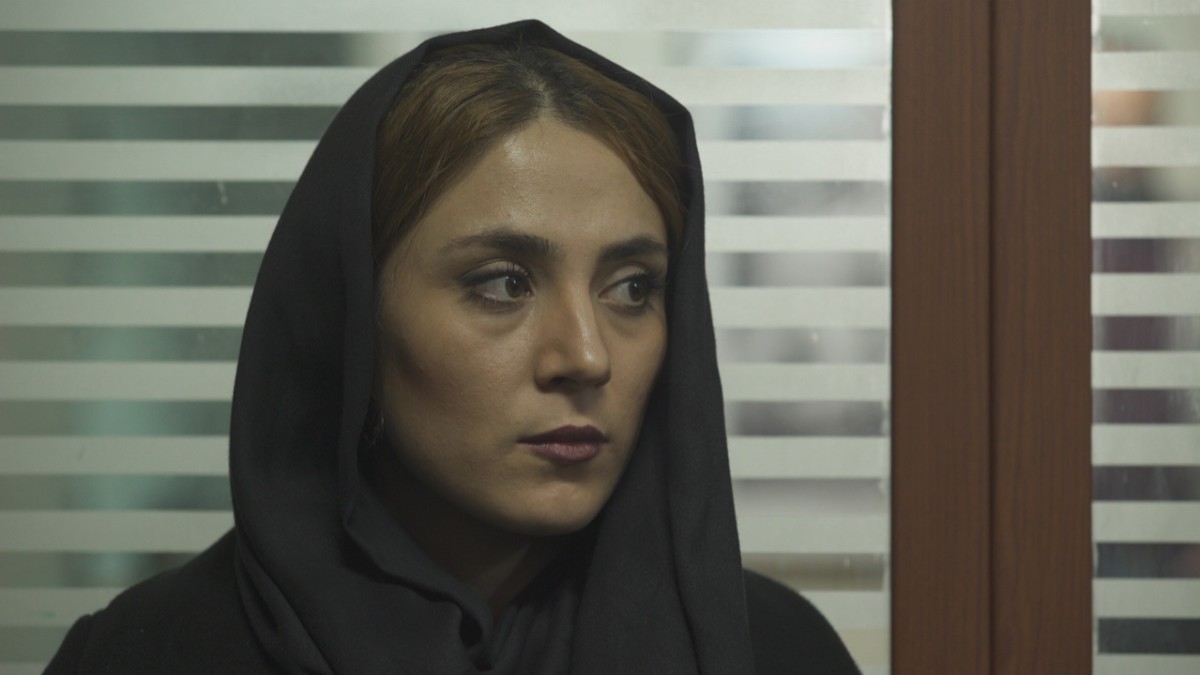
What was your rehearsal process and period?
MG: After casting the actors for Utopia, I began rehearsal. They were mostly non- actors and unprofessional so it made our work much harder. Due to the lack of funds, I was forced to work with them. Most of my focus was on their performance, we rehearsed for a whole week and the results came out better.
You shot the film in days. How long were your days?
MG: Filming took 6 days. Due to the heavy rain, production halted for a day. The duration for filming was 9 am to 8 pm daily, except the times we filmed at night and had to work harder and longer hours. In one case, filming continued into 4 am the next day.
Did the tight shooting schedule make it harder or easier? How did it affect performances?
MG: If you have a professional team and actors, the tight schedule won’t set you on edge. Otherwise, you will always be behind in your planning making production longer. We shot in 6 days and got tired of the pressures of the schedule because I was alone wearing many hats all the time.
How much did you go over budget? How did you manage it?
MG: Whenever I didn’t have enough money to hire someone, I had to do it myself. This eventually led me to double roles, just because of the lack of money.
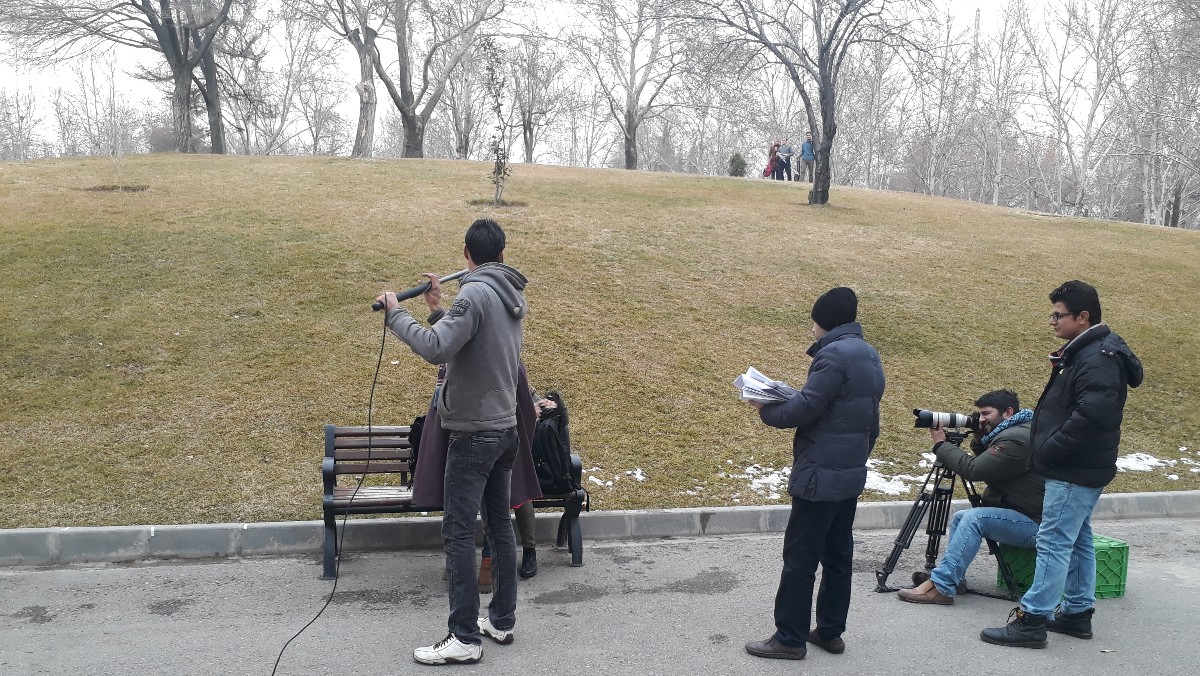
How important is marketing? Do you think a project can make any dent without it these days?
MG: What do you think will happen if we don’t do the pre-production process? or remove the film’s global screening? Certainly, it’s impossible. Each part has its significant place. Marketing, puts your work out there, what’s the benefit of making a movie if nobody will see it?
What was the experience of working with such a small shooting crew?
MG: Working with a small crew has its merits and demerits. The first advantage is working under pressure with a low budget alongside a small group while learning to reduce costs. With a big budget, it’s also key. The studio wants to see how far an affordable budget can be stretched. Creating low-cost films with a small team is the starting point of learning how to deal with the process of filmmaking. Independent filmmakers follow this path because is it the start-off point for the great Hollywood filmmakers: Martin Scorsese, Stanley Kubrick, Steven Spielberg, all followed this path. The disadvantages are, lower numbers mean more pressure. The film may not reach its maximum potential projecting below the maximum abilities of your crew.
Of course, every case is different from another one. Mostly this is a natural and bitter event. In documentaries, however, sometimes you have to work with a small team because the conditions require it. The most demerit for me was doing it alone, lack of support, and low budget.
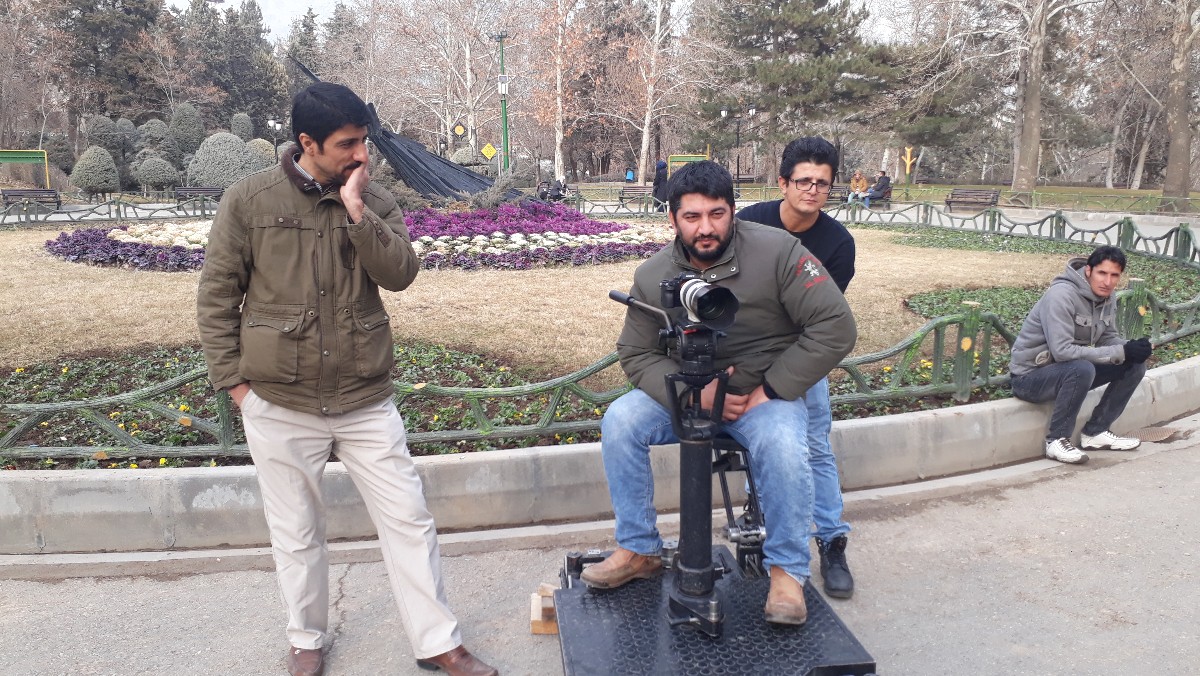
I remember a night that we were filming at our filmmaking institute when the caretaker came and said: “Ok. That’s enough. I want to go home and you should leave here now.” Then he turned off all the lamps. Here in Iran, everyone thinks he/she is a boss. Nobody supported us. Six universities didn’t allow filming on their campus, simply because my film was about women’s rights. One of them told me: “look, I have a wife and child. I don’t want to lose my job”. Some people even didn’t give me a piece of advice. I was upset and told myself that I must enter any area that I need and I will learn whatever I need.
The film looks stunning. How did you get such a good look when shooting so fast?
MG: Thank you! Of course, all the filming components went into making it a good film. The location served as the main factor in completing the film look. For certain special shots in the film, we had to be specific, it’s like hitting a specific location for only one that shot. The most important thing was to satisfy the story’s need. The story talks to the director. Everything that the story needs and tells me, and I do the best I can to provide it with the framework of our existing capabilities.
Did you look at rushes? On what format?
MG: I was watching part of rushes at the end of every shooting night and was thinking about film editing but since I had thought through film editing at the time of writing the script, I mainly got those rushes I needed and then edited the film.
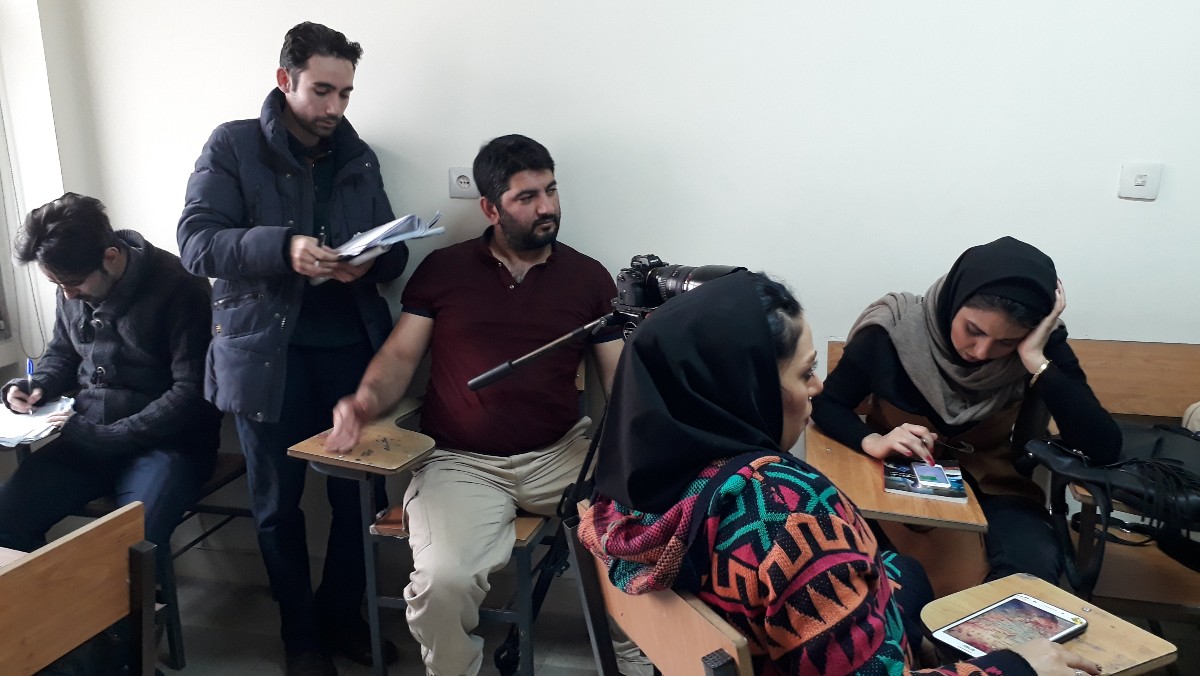
What were the advantages and disadvantages of the way you worked?
MG: I brought to cinema what I do in my life, and that is the personalization of my whole filmmaking process. From how to write a script to pre-production sheets to how to direct the film. I created “director’s notes” for each film which includes all the details of making the film. I have developed my own style in all of them. I believe that everyone has his/her own way and when you find your style and own way in cinema, you are comfortable. It is exactly like life. You look at others a lot until a certain age, but from somewhere you find yourself and go your own way. And this is how others will see you.
What else have you got in the works?
MG: I have two scripts ready. One is a comedy titled Dirt Road, it focuses on human rights, humanity, love, and of course my continuing support of women’s rights. The other project is a romance titled The Last Day that’s about the fall of human values. Each will be thirty minutes. Unfortunately, no one is yet supporting me with these projects, and it’s back to loneliness. Covid-19 pandemic made everything worse, before the pandemic, I was advised to run a crowdfunding campaign. Coronavirus changed everything.
If you would like to support us, please contact me or register your email in the mailing list part of my website to be aware of it. Or follow us on the social networks below. Supporting isn’t only a financial matter, but you can help us by sharing the film with your friends and encouraging us. You can watch the film & find everything you need on my website.
Tell us what you think of the interview with Mahdi Ghorbani. What do you think of it? What ideas did you get? Do you have any suggestions? Or did it help you? Let’s have your comments below and/or on Facebook or Instagram! Or join me on Twitter.
Follow Mahdi Ghorbani on Social Media
Website
IMDB
Instagram
Vimeo
In Camera by Naqqash Khlalid Launch on VOD April 29
Naqqash Khlalid’s Directs Nabhan Rizwan. In Camera stars an EE BAFTA Rising Star Award Nominee.
2025 Philip K. Dick Sci-Fi Film Festival Award Winners Announced
Vanessa Ly’s Memories of the Future Awarded Best PKD Feature
Dreaming of You by Jack McCafferty Debuts VOD & DVD for April Release
Freestyle Acquires “Dreaming of You” for April 15th Release
Hello Stranger by Paul Raschid set for London Games Festival & BIFFF
The film Is set for an April 10th Premiere at The Genesis Cinema in London (LGF) and BIFFF
Daydreamers Official Trailer by Timothy Linh Bui: Released by Dark Star Pictures
Daydreamers Vietnamese Vampire Thriller – May 2nd release
Afternooner by The Harrow Brothers: Funniest Movie of the Decade on VOD & DVD April
Freestyle Acquires “Afternooner” for April Release









